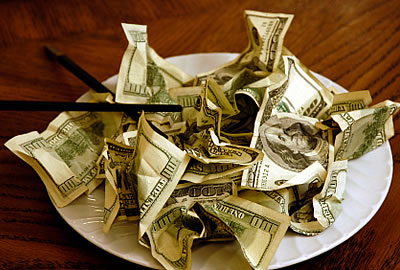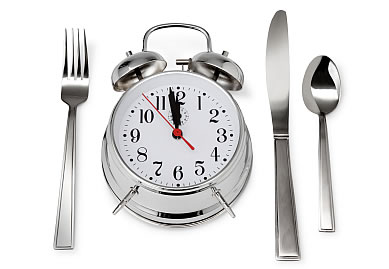
Profit and prosper with the best of Kiplinger's advice on investing, taxes, retirement, personal finance and much more. Delivered daily. Enter your email in the box and click Sign Me Up.
You are now subscribed
Your newsletter sign-up was successful
Want to add more newsletters?

Delivered daily
Kiplinger Today
Profit and prosper with the best of Kiplinger's advice on investing, taxes, retirement, personal finance and much more delivered daily. Smart money moves start here.

Sent five days a week
Kiplinger A Step Ahead
Get practical help to make better financial decisions in your everyday life, from spending to savings on top deals.

Delivered daily
Kiplinger Closing Bell
Get today's biggest financial and investing headlines delivered to your inbox every day the U.S. stock market is open.

Sent twice a week
Kiplinger Adviser Intel
Financial pros across the country share best practices and fresh tactics to preserve and grow your wealth.

Delivered weekly
Kiplinger Tax Tips
Trim your federal and state tax bills with practical tax-planning and tax-cutting strategies.

Sent twice a week
Kiplinger Retirement Tips
Your twice-a-week guide to planning and enjoying a financially secure and richly rewarding retirement

Sent bimonthly.
Kiplinger Adviser Angle
Insights for advisers, wealth managers and other financial professionals.

Sent twice a week
Kiplinger Investing Weekly
Your twice-a-week roundup of promising stocks, funds, companies and industries you should consider, ones you should avoid, and why.

Sent weekly for six weeks
Kiplinger Invest for Retirement
Your step-by-step six-part series on how to invest for retirement, from devising a successful strategy to exactly which investments to choose.
You gotta eat. The trick is to satisfy the hunger without starving your wallet.
According to the U.S. Department of Labor, the average American family of four spends $8,513 per year on groceries -- that's $709 per month! And many of us blow our budgets further on restaurant meals.
Here are ten ways to save money on food, whether you're eating in or out:

LEARN TO COOK
Eating out is a huge budget buster. Even seemingly inexpensive fast food can add up quickly. Cooking your own meals could save you a small fortune on restaurants and groceries (you'll buy fewer pricey frozen and prepared meals). Plus, you could make dating cheaper -- who wouldn't be impressed by a cozy dinner?
Scour the Web for simple recipes to get your feet wet, or check out beginner cook books at your local bookstore.

TAKE FEWER TRIPS TO THE GROCERY STORE
Making bigger shopping trips less often will cut down on your impulse buys. In fact, almost half of all shoppers go to the store three or four times per week. Shoppers making a "quick trip" to the store usually purchase 54% more than they planned, according to a study published by the Marketing Science Institute.
If you go to the store three times a week and spend $10 on impulse buys each trip, that adds up to $120 extra per month. But if you go only once a week, you'll spend $40 per month on impulse buys. That saves you $80 per month, or $960 per year.

BREAK YOUR RESTAURANT ROUTINE
This may seem obvious, but we are creatures of habit and convenience. Make an effort to cut back a little, such as dining out once a week instead of three nights a week. With $20 meals, this simple act will trim your expenses by $160 a month.
Or, try something different –- and cheaper. Pick up a restaurant guide or a tour book of your city for budget-friendly suggestions. If you eat out three times a week, cutting just $5 from each meal ticket will save you $60 a month.


GROCERY SHOP WITH FOCUS
Another way to cut down on impulse buys is to shop with a list. Sketch out the week's meals and jot down the ingredients you'll need. Remember to factor in treats, snacks and lunches. Then stick to the list.
You might find it helpful to leave the kids at home so you're not tempted to give into pressure from crying children for an extra treat or toy that isn't on your list.

BUY GENERIC
You can almost always save money by choosing a no-name brand instead of a brand name. And you usually won't sacrifice much in quality on many items, from cereal to canned goods and frozen vegetables. Also, the savings on generic baby formula and prescription drugs can be huge.
You could save a few cents to a couple of dollars per item. And that adds up quickly each month.


USE COUPONS
You know about coupons for groceries. But don't overlook bargains for dining out.
For instance, at Restaurant.com you can get a $25 gift certificate to local restaurants for only $10. Use the coupon once a week, and you'll save $60 per month.
Or, before you dine out, hit the Web. At http://www.retailmenot.com/coupons/food, you can quickly find printable coupons and codes for dozens of eateries.


MIND THE UNIT PRICE
Many grocery store tags will tell you how much an item costs per ounce, per pound or by some other unit of measure. Comparison-shop by unit price and save.
For example, a pack of 40 diapers at our local drug store cost $13, or 33 cents per diaper. A box of 144 diapers cost $35, or 24 cents per diaper. A difference of 9 cents may not seem like much, but when you change a diaper six to eight times each day, that amounts to a savings of $16 to $22 per month.
One caveat: Don't buy in bulk if you won't use it all -- otherwise, you wasted your money, no matter how good a deal it was.

MORE WAYS TO SAVE MONEY
Save Money on Investing
Save Money on Transportation
Save Money on Travel
Save Money on Utilities
Save Money on Phone, Internet and TV
Save Money on Credit, Debt & Banking
Save Money on Entertainment
Click here to print, email or comment on this slide show.
Profit and prosper with the best of Kiplinger's advice on investing, taxes, retirement, personal finance and much more. Delivered daily. Enter your email in the box and click Sign Me Up.
-
 The New Reality for Entertainment
The New Reality for EntertainmentThe Kiplinger Letter The entertainment industry is shifting as movie and TV companies face fierce competition, fight for attention and cope with artificial intelligence.
-
 Stocks Sink With Alphabet, Bitcoin: Stock Market Today
Stocks Sink With Alphabet, Bitcoin: Stock Market TodayA dismal round of jobs data did little to lift sentiment on Thursday.
-
 Betting on Super Bowl 2026? New IRS Tax Changes Could Cost You
Betting on Super Bowl 2026? New IRS Tax Changes Could Cost YouTaxable Income When Super Bowl LX hype fades, some fans may be surprised to learn that sports betting tax rules have shifted.
-
 What to Do With Your Tax Refund: 6 Ways to Bring Growth
What to Do With Your Tax Refund: 6 Ways to Bring GrowthUse your 2024 tax refund to boost short-term or long-term financial goals by putting it in one of these six places.
-
 What Does Medicare Not Cover? Eight Things You Should Know
What Does Medicare Not Cover? Eight Things You Should KnowMedicare Part A and Part B leave gaps in your healthcare coverage. But Medicare Advantage has problems, too.
-
 15 Reasons You'll Regret an RV in Retirement
15 Reasons You'll Regret an RV in RetirementMaking Your Money Last Here's why you might regret an RV in retirement. RV-savvy retirees talk about the downsides of spending retirement in a motorhome, travel trailer, fifth wheel, or other recreational vehicle.
-
 The Six Best Places to Retire in New England
The Six Best Places to Retire in New Englandplaces to live Thinking about a move to New England for retirement? Here are the best places to land for quality of life, affordability and other criteria.
-
 The 10 Cheapest Countries to Visit
The 10 Cheapest Countries to VisitWe find the 10 cheapest countries to visit around the world. Forget inflation and set your sights on your next vacation.
-
 15 Ways to Prepare Your Home for Winter
15 Ways to Prepare Your Home for Winterhome There are many ways to prepare your home for winter, which will help keep you safe and warm and save on housing and utility costs.
-
 Six Steps to Get Lower Car Insurance Rates
Six Steps to Get Lower Car Insurance Ratesinsurance Shopping around for auto insurance may not be your idea of fun, but comparing prices for a new policy every few years — or even more often — can pay off big.
-
 How to Increase Credit Scores — Fast
How to Increase Credit Scores — FastHow to increase credit scores quickly, starting with paying down your credit card debt.
